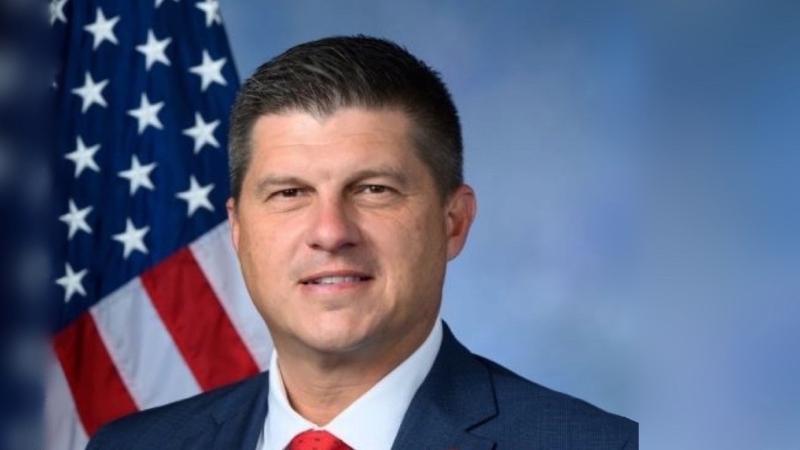Brad Finstad | wikipedia
Brad Finstad | wikipedia
WASHINGTON, D.C. – On May 11, Congressman Brad Finstad (MN-01), Chairman of the House Agriculture Subcommittee on Nutrition, Foreign Agriculture, and Horticulture, led a hearing on stakeholder perspectives on agricultural trade. “It is imperative the trade programs in Title III work efficiently and can be fully utilized by our producers,” Rep. Finstad said in his opening statement. “So as we continue to gather information from stakeholders ahead of the next farm bill, we need to have a clear picture of the trading economy our producers are engaged with—day in and day out.”
Chairman Finstad asked witnesses about the potential impact of foreign animal diseases, like African Swine Fever, on our nation’s food supply, as well as Mexico’s unjust attempt to ban U.S. genetically modified corn, going against USMCA, and putting $5 billion worth of U.S. exports at risk.
The full hearing can be watched here.
The full list of witnesses can be found here.
Chairman Finstad’s opening remarks, as prepared for delivery, can be seen below and viewed here:
"Good morning and welcome to the first hearing of the House Committee on Agriculture’s Subcommittee on Nutrition, Foreign Agriculture, and Horticulture in the 118th Congress. To Ranking Member Hayes, welcome, and I look forward to working together to pass a strong Farm Bill that is written by farmers for farmers, and by rural communities for rural communities.
"And importantly, thank you to our witnesses for taking time out of their schedules to be here today.
"As a proud fourth-generation farmer, raising the fifth, I understand how important a robust trade agenda and economy is to farm country and ensuring viable markets for our producers to ship their commodities to.
"We know American farmers and ranchers efficiently produce the safest and most affordable fuel, food, and fiber in the world. The value proposition is well-known by our partners and consumers around the globe, who purchase more than 20 percent of U.S. agricultural production.
"Nevertheless, we are headed towards an agricultural trade deficit of $14.5 billion this year, and our overall trade deficit has reached a staggering $945 billion—the largest ever.
"And while our top trade competitors continue to negotiate free trade agreements, we hear Biden officials referring to these types of negotiations as “20th century tools.” Our market shares in key destinations—such as Europe and East Asia—have declined, yet the Biden Administration’s sole focus is on “frameworking” and “dialoguing.”
"Given these unfortunate realities, it’s imperative the trade programs in Title III work efficiently and can be fully utilized by our producers.
"So as we continue to gather information from stakeholders ahead of the next farm bill, we need to have a clear picture of the trading economy our producers are engaged with—day in and day out.
"Today, I look forward to hearing more about that from our expert witnesses as well as how they utilize the trade programs provided by the Farm Bill and other thoughts they have for carving a productive pathway forward.
"While the stagnancy of the current administration’s trade agenda is frustrating, I would be remiss if I didn’t mention my appreciation for the work our agriculture trade officials are doing at USDA and USTR. I welcomed the chance to visit with both Under Secretary Taylor and Ambassador McKalip recently, and I look forward to continued partnership and engagement with them.
"Before I recognize the distinguished Ranking Member, a quick note on this subcommittee’s activities. There has been some public fodder on the types of topics we should address, namely in the nutrition space. Rest assured, we will be discussing those issues, starting at the full Committee level, during the first work period in June.
"With that, I recognize the Ranking Member from Connecticut, Jahana Hayes. I look forward to a fruitful collaboration throughout the 118th Congress."
Original source can be found here.




 Alerts Sign-up
Alerts Sign-up